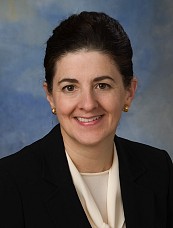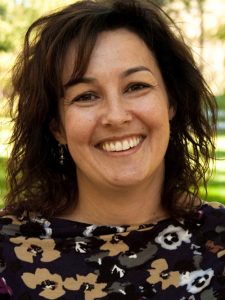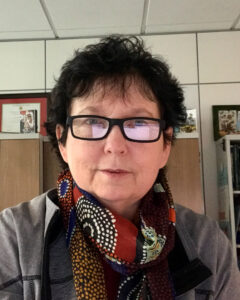Prevention

Nancy Poole, MA, PhD — Prevention Lead
Dr. Nancy Poole is the Director of the British Columbia Centre of Excellence for Women’s Health in Vancouver Canada, and the Prevention Lead for the CanFASD Research Network. Nancy is well known for her collaborative work on FASD-related research, training and policy initiatives with governments and organizations on local, provincial/territorial, national and international levels. She is involved in research teams and knowledge exchange projects on a wide range of women’s health and substance use issues; and has co-edited four books: Highs and Lows: Canadian Perspectives on Women and Substance Use(2007), Becoming Trauma Informed(2012), Making it Better: Gender Transformative Health Promotion(2014) and Transforming Addiction: Gender, Trauma and Transdisciplinarity(2015). Nancy is also known for leadership in piloting online participatory methods for knowledge generation and exchange on women’s health, including virtual networks and online communities of inquiry.
National Database

Jocelynn L. Cook, PhD, MBA — Senior Research Lead/National Database Lead
Dr. Jocelynn Cook graduated with a PhD in Reproductive Physiology from the Medical University of South Carolina in 1997 and spent 10 years in an academic setting as graduate student, a post-doctoral fellow and an Assistant Professor. Wanting to expand her skillset beyond the basic science laboratory, she embarked on a Masters of Business Administration, and graduated from the University of Saskatchewan with an MBA, specializing in Economics and Health Policy. Her professional career has focused on issues related to maternal-fetal medicine; specifically, substance abuse during pregnancy, preterm birth, Fetal Alcohol Spectrum Disorder (FASD) and Assisted Human Reproduction. She has gained expertise in clinical research and issues related to clinical practice for pregnant women and their children and program evaluation, as well as experience with population and epidemiology research. Early on in her career, she became involved with Aboriginal Health research, especially as it related to the social determinants of health. This broadened her research perspective and she gained expertise related to suicide prevention, mental health and addictions, child development, communicable diseases, chronic diseases, health surveillance and National and International trends in morbidity and mortality.
Dr. Cook joined the Society of Obstetricians and Gynaecologists of Canada as its first Scientific Director in 2014 and oversees all work related to Continuing Medical Education, Clinical Practice Guidelines, Research, Accreditation, Global Health and Indigenous Health.
Dr. Cook is an Adjunct Professor to the department of Obstetrics and Gynecology at the University of Ottawa, appointed in 2002.
Diagnostic

Ana Hanlon-Dearman, MD, FRCPC, FAAP — Diagnostic Co-Lead
Dr. Ana Hanlon-Dearman is a Developmental Pediatrician at the Manitoba FASD Centre and at the Child Development Clinic with the Child Health Program in Winnipeg, MB. She is an Associate Professor of Pediatrics and Child Health with the University of Manitoba and holds a cross appointment with the Department of Community Health Sciences. She has been awarded the Manitoba FASD Research Scientist Award from Healthy Child Manitoba Office with the University of Manitoba Community Health Sciences, and chairs the Research Group at the Manitoba FASD Centre. Dr. Hanlon-Dearman has been working collaboratively with a number of research teams to understand population health issues of individuals with FASD and to better integrate care for affected individuals and their families. Her clinical and research interests include neurodevelopmental patterns of children with FASD, as well as children with a variety of neurodevelopmental disabilities.

Mansfield Mela, MBBS, FWACP, MRC (Psych), MSc, FRCPC — Diagnostic Co-Lead
Dr. Mansfield Mela is an Associate Professor of Psychiatry at the University of Saskatchewan. His clinical practice is out of the Forensic Outpatient Clinic at University of Saskatchewan and the Forensic Inpatients Services at Regional Psychiatric Center, Saskatoon. Dr. Mela’s recent research studies include psychiatric drug use in sex offenders, FASD in forensic populations, neurotoxic metals in aggressive patients, spirituality and religiosity in forensic psychiatric patients.
Intervention

Jacqueline Pei, PhD, R.Psych. — Intervention Lead
Jacqueline Pei is a Professor in the School and Clinical Child Psychology Program and Assistant Clinical Professor in the Department of Pediatrics at the University of Alberta. Also a practicing Registered Psychologist for over twenty years, Dr Pei began her career as a criminologist and forensic counselor working with incarcerated youth. Motivated by this early work, she returned to academia to study youth at risk, child development, and neuropsychology, leading to her current focus on interventions for individuals with Fetal Alcohol Spectrum Disorders. Dr Pei has over 150 peer reviewed publications, but places the greatest value on her work with various community and government agencies. To this end, Dr Pei currently leads the Intervention Network Action Team (iNAT) for the Canada FASD Research Network, a role that facilitates the link between research, policy, and practice
Justice

Kaitlyn McLachlan, MA, PhD. — Justice Lead
Dr. Kaitlyn McLachlan is an Assistant Professor in the CPA-accredited Clinical Psychology program at the University of Guelph. Dr. McLachlan is a Clinical Psychologist who completed graduate training (MA, PhD) with a forensic specialization at Simon Fraser University, and subsequent postdoctoral training as a Fellow with the Kids Brain Health Network with concurrent appointments in the Department of Pediatrics at the University of Alberta, and the Child and Family Research Institute, Developmental Neurosciences and Child Health, at the University of British Columbia. Dr. McLachlan is also holds an adjunct faculty affiliation the Department of Psychiatry and Behavioural Neurosciences at McMaster University, and is a member of the Peter Boris Centre for Addictions Research at St. Joseph’s Healthcare Hamilton.
Child Welfare

Dorothy Badry, PhD, RSW — Child Welfare Lead
Dr. Dorothy Badry is an Associate Professor in the Faculty of Social Work (FSW), University of Calgary (U of C). Her research interests and area of expertise primary focus is on Fetal Alcohol Spectrum Disorder, (FASD) birth mothers and families of children with FASD, substance abuse social problems for women and families, homelessness and disability advocacy. She developed the Caregiver Curriculum on FASD through a 3-year research project funded by the Public Health Agency of Canada (2011-2014).
She is a member of the Steering Committee of the Prairie Child Welfare Consortium has co-edited three books in the Voices from the Prairies series. Her research agenda is on FASD from prevention to intervention. She teaches an online course on FASD and Social Work Practice with a focus on child welfare to social work students across the Prairie Province. She has received research funding from the Public Health Agency of Canada, First Nations and Inuit Health Branch (FNIHB) and PolicyWise. She is the co-lead of the Education and Training Council of the Alberta FASD Cross Ministry Committee. She has also been a member of the Canada FASD Research Network Action Team on Prevention since 2008.
Awards: Peak Scholar Nominee, University of Calgary 2017; Recipient of the Premier’s Council of the Status of Persons with Disabilities Award of Excellence for FASD work, 2016
Indigenous Advisor

Dr. Melissa Tremblay — Indigenous Advisor
Dr. Melissa Tremblay is a member of the Métis Nation of Alberta and was born and raised in rural Alberta. Melissa is a Registered Psychologist in the province of Alberta, and an Assistant Professor in both the School and Clinical Child Psychology Program and the Counselling Psychology Program at the University of Alberta. As the mother of three young children, Melissa is acutely aware of the need to strengthen opportunities for Indigenous children and youth to deepen understandings of their cultures and histories. With her earliest frontline work in the area of forensic counselling, Melissa has a long-standing interest in walking alongside structurally marginalized young people on their journeys toward health and wellness. Her research work takes a relational, community-based participatory approach and has allowed her the privilege of working in partnership with Indigenous peoples, communities, schools, and agencies across the country. Melissa’s work also maintains a strong focus on advocating for transformative, community-grounded approaches to supporting Indigenous children, youth, and families to access their strengths and wisdom.
